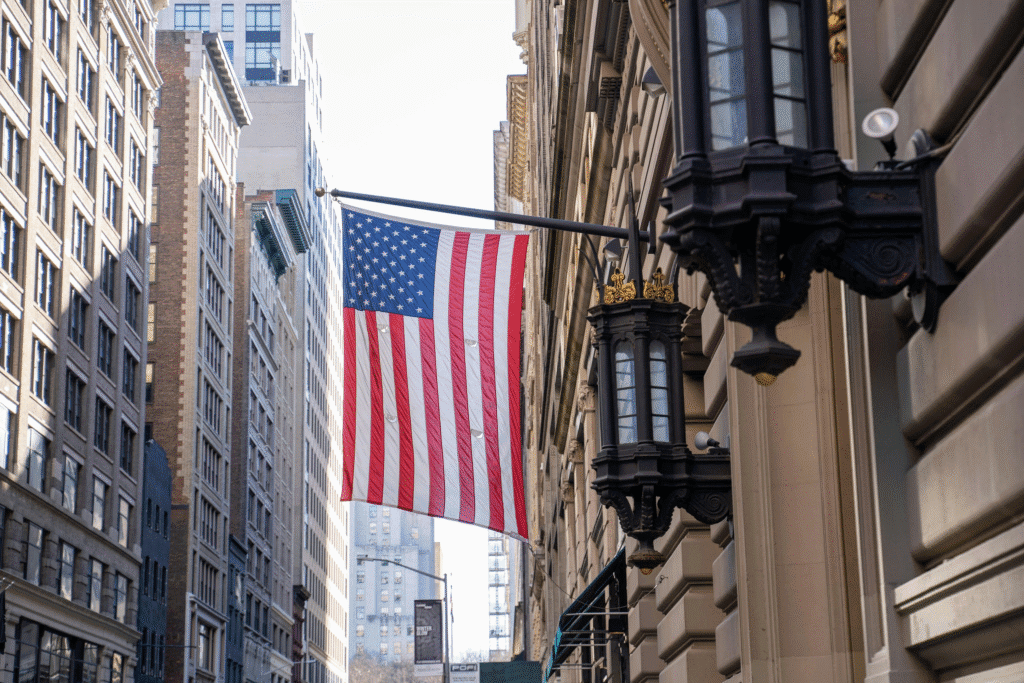China has strongly criticized the United States for worsening trade tensions between the two nations. Beijing has defended its decision to limit exports of rare earth elements and related equipment, saying it was necessary to protect national interests. The Chinese government accused Washington of showing “double standards” after U.S. President Donald Trump announced new tariffs on Chinese goods.
The disagreement marks another twist in the long and tense trade relationship between the world’s two largest economies. On Friday, President Trump imposed new tariffs of 100% on certain Chinese exports to the U.S. He also announced that by November 1, new restrictions would be placed on exporting critical software technology. These steps came in response to China’s earlier move to tighten control over rare earth exports — materials that are extremely important for manufacturing electric vehicles, smartphones, and other modern technologies.
China’s Ministry of Commerce issued a formal statement on Sunday, calling Trump’s actions “hypocritical” and unfair. The ministry said that the U.S. was trying to blame China for a situation that America itself had created. “Complaining about China’s rare earth export curbs while imposing trade restrictions of its own shows Washington’s double standards,” the ministry said. The statement added that China’s decisions were based on legitimate economic and environmental concerns, not on politics or retaliation.
Rare earth elements are a group of 17 minerals that are vital for making products like electric cars, wind turbines, and advanced weapons. Although these materials are found in several countries, China controls most of the world’s supply and production. This gives Beijing significant influence over global technology manufacturing. Any disruption in China’s rare earth exports could affect companies worldwide, especially those in the U.S. that depend on these materials for production.

China’s latest export restrictions require special licenses for companies wanting to export certain rare earth materials and technologies. However, Beijing clarified that these measures are mainly aimed at preventing misuse of sensitive technology for military purposes. The Ministry of Commerce said it would continue to support exports meant for civilian and peaceful use, assuring foreign businesses that they would receive “easy licensing” for legitimate trade.
Despite China’s sharp criticism of the U.S. tariffs, the country did not immediately announce new countermeasures or matching tariff hikes. This restraint suggests that Beijing might be trying to avoid further escalation, especially with an important meeting expected later this month between President Xi Jinping and President Trump. Analysts say that both countries may still want to keep the door open for dialogue, even though tensions are high.
The U.S.-China trade relationship has gone through several ups and downs over the past decade. In recent years, both sides have placed heavy tariffs on each other’s goods, affecting global markets. Earlier this year, the two countries reached a temporary truce that allowed trade to continue without additional tariff increases. However, that fragile peace seems to have fallen apart again, as each side accuses the other of breaking promises made during earlier talks.
China has also accused the U.S. of going against the “spirit of the Madrid talks,” which were held to find common ground on trade and technology issues. According to Beijing, the American government’s new measures have damaged trust and cooperation between the two countries. “The U.S. is trying to limit China’s technological growth while claiming to support fair competition,” a Chinese spokesperson said. “This approach only creates division and uncertainty.”
Meanwhile, the renewed trade conflict has caused major reactions in global financial markets. Wall Street saw a sharp drop as investors worried about the future of trade between the two economic giants. Technology companies that depend heavily on Chinese components, such as chipmakers and electric vehicle manufacturers, saw their stock prices fall. Experts fear that continued trade disputes could slow down global economic recovery and impact industries like electronics, energy, and defense.
For the U.S., the new tariffs are intended to push China into loosening its export controls and reducing its dominance in key supply chains. However, many analysts believe this strategy could backfire. If China decides to further restrict exports of rare earth materials, American manufacturers could face shortages, making it harder to produce critical technologies. Some experts also warn that these disputes could encourage China to strengthen its alliances with other countries, such as Russia and members of the Global South, to reduce dependence on U.S. markets.
The rare earth issue has long been a sensitive point in U.S.-China relations. The minerals are essential for modern technology, but mining and processing them can cause significant environmental damage. China has previously argued that its export limits are meant to protect the environment and ensure sustainable use of resources. Still, Washington sees the move as a way for China to maintain control over strategic materials.
Many business leaders and economists have urged both governments to find a peaceful resolution. They argue that prolonged tensions will hurt companies and consumers on both sides. Some American manufacturers have already started searching for alternative suppliers of rare earth elements in countries like Australia, Vietnam, and Canada, but replacing China’s massive production capacity will take years.
In its Sunday statement, Beijing emphasized that it remained open to fair and equal dialogue. “China does not seek confrontation,” the Commerce Ministry said. “But we will firmly defend our national interests and industrial security.” The ministry added that it hoped the U.S. would “correct its mistakes” and return to cooperation based on mutual respect.
For now, both countries appear to be carefully watching each other’s next moves. The world is also paying close attention, as the outcome of this dispute could shape global trade for years to come. The upcoming summit between Presidents Xi and Trump is seen as a possible opportunity to ease tensions — but only if both sides are willing to compromise.








